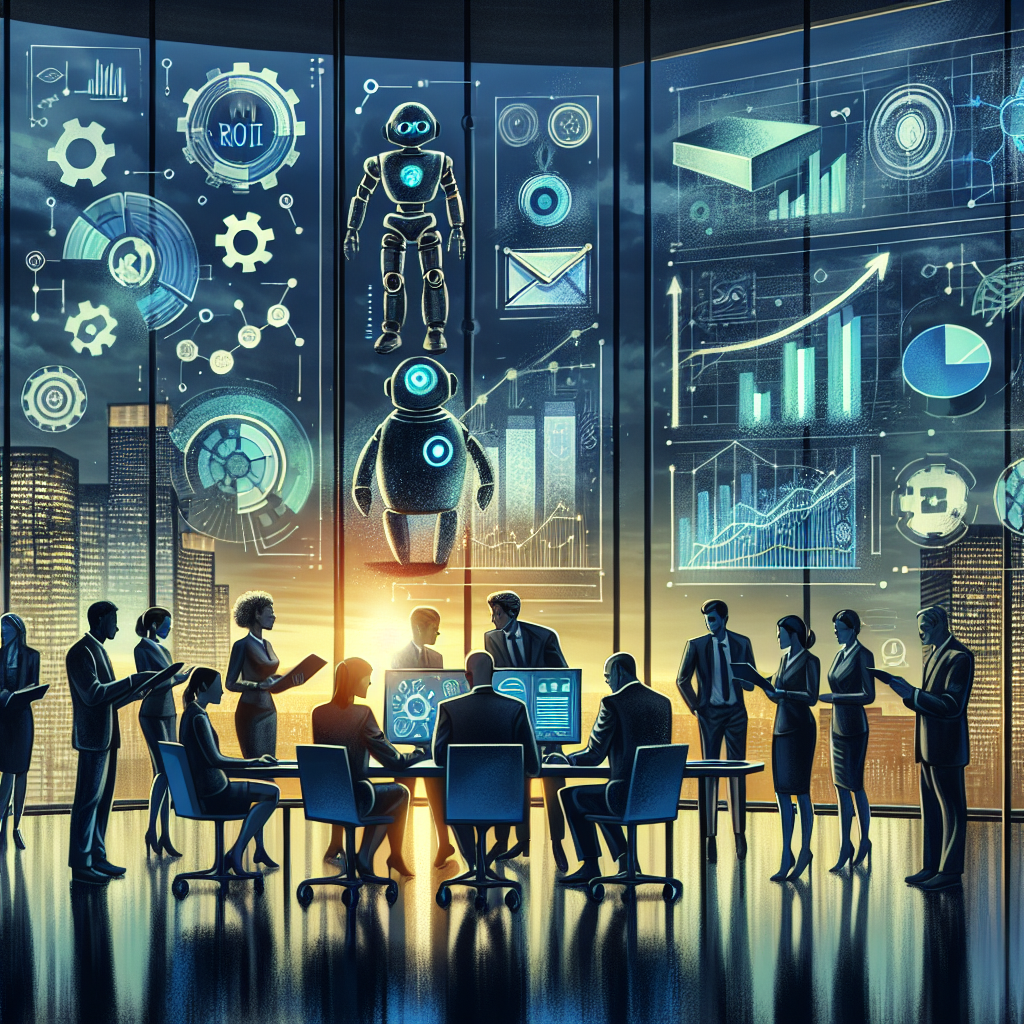Embracing the Agentic AI Workplace: The Future of Enterprise Automation and Governance
As enterprises continue to evolve in the digital age, the concept of the agentic AI workplace is rapidly emerging as a transformative paradigm for automation and decision-making. Unlike traditional automation tools that follow rigid, predefined instructions, agentic AI systems possess a level of autonomy that allows them to make independent decisions, prioritize tasks, and interact with human agents dynamically. This shift heralds a new era in enterprise AI adoption—one that requires fresh perspectives on AI governance, risk management, and the integration of robotic process automation (RPA).
—
Understanding the Agentic AI Workplace
The agentic AI workplace represents an environment where AI systems do not merely execute repetitive tasks but act as autonomous agents capable of self-directed actions within organizational processes. Think of this as upgrading from a simple, rule-based robot vacuum that cleans according to a fixed schedule to a smart assistant that can decide when and where to clean based on real-time environmental data, occupant behavior, and even resource efficiency goals.
In an enterprise context, such AI agents might autonomously optimize workflows, reallocating resources in response to project demands, or identifying inefficiencies that humans might overlook. This is fundamentally different from classic robotic process automation (RPA), which is excellent at executing repetitive, scripted tasks but lacks the autonomy to adapt or learn over time.
The operational advantage is clear: agentic AI can accelerate productivity while reducing human error, enabling workers to focus on higher-value tasks requiring creativity and strategic thinking.
—
The Role of Enterprise AI Adoption and Automation
As companies pursue AI-driven innovation, enterprise AI adoption is no longer a question of if but when and how. The agentic AI workplace stands at the forefront of this transition. Organizations leverage automation not only to cut costs but to achieve agility in responding to market shifts.
Consider a large financial institution adopting agentic AI: instead of manually configuring dozens of RPA bots for individual loan processing steps, the agentic system learns from data patterns and regulatory updates, autonomously adjusting workflows to ensure compliance and improve turnaround times. This adaptive approach reduces friction between departments and accelerates service delivery, which is a competitive advantage.
However, such autonomy raises critical concerns. Enterprises must reconcile the need for AI governance frameworks that ensure ethical, transparent, and accountable AI behaviors while managing the risks associated with automated decision-making.
—
AI Governance and Risk Management in the Agentic AI Era
With greater autonomy comes greater responsibility. AI governance plays a pivotal role in monitoring and controlling the decisions made by agentic systems. Governance is not just about imposing restrictions but enabling trust through transparency, explainability, and continuous oversight.
A useful analogy is the evolution of autopilot systems in aviation. While pilots still oversee flight, the autopilot manages routine controls, but strict protocols, monitoring tools, and fail-safes ensure that unexpected issues are managed promptly. Similarly, organizations adopting agentic AI must establish governance frameworks that include:
– Continuous monitoring of AI decisions for compliance and anomalies.
– Mechanisms for human override and intervention.
– Clear audit trails tracking AI actions and rationales.
– Regular risk assessments focused on emerging threats and biases.
Risk management in this context goes beyond traditional cybersecurity. It encompasses ethical risks, operational risks (such as automation errors), and reputational risks. By instituting robust governance mechanisms, companies can unlock the full potential of automation while safeguarding stakeholder interests.
—
Future Implications and Forecasts
Looking ahead, the agentic AI workplace is set to redefine how businesses operate across sectors. Analysts forecast that by 2030, a significant proportion of routine managerial and operational decisions will be delegated to autonomous AI agents, enabled by advances in machine learning and natural language processing.
This shift will drive several trends:
– Hybrid Workflows: Seamless collaboration between human workers and AI agents, where AI handles data-intensive or repetitive decisions, augmenting human creativity.
– Dynamic Adaptability: AI systems capable of self-optimizing as organizational structures and external conditions change, reducing downtime and improving resilience.
– Enhanced Governance Technologies: Use of AI-powered governance tools to monitor and audit agentic systems in real-time, ensuring compliance and ethical standards are maintained.
– Expanding Automation Horizons: Beyond traditional RPA, distinguishing between automated tasks and autonomous agent-driven workflows will become a key competency for enterprises.
However, successful adoption hinges on proactive leadership, strategic investment, and cultivating an organizational culture that embraces both the opportunities and challenges of agentic AI.
—
For further insights on enterprise AI adoption and the future of automation, see the recent discussion on AI advances and governance considerations here.
—
In summary, the agentic AI workplace is more than just a technological upgrade—it’s a strategic shift that demands thoughtful adoption of automation, strong AI governance, and tailored risk management. By navigating this evolving landscape carefully, enterprises can harness the benefits of AI autonomy to drive innovation, efficiency, and ethical responsibility in the years to come.

